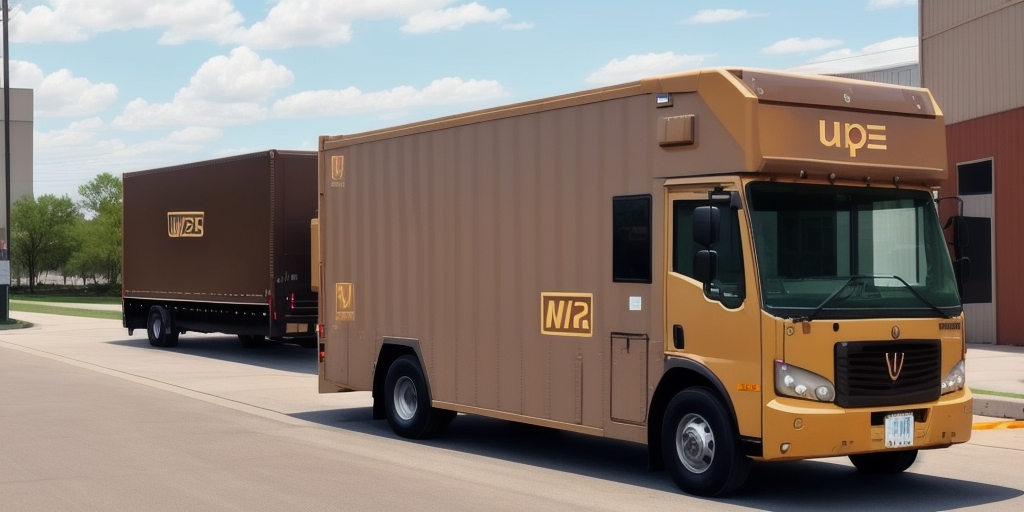Low-Cost Shipping Solutions for Small Businesses
As a small business owner, shipping costs can significantly impact your budget. Affordable shipping is essential for maintaining profitability and ensuring customer satisfaction. In this article, we explore the importance of cost-effective shipping solutions, strategies for selecting the right shipping methods, and best practices for minimizing shipping expenses without sacrificing quality.
The Importance of Affordable Shipping for Small Businesses
In the competitive world of e-commerce, shipping plays a crucial role in customer purchasing decisions. According to a Statista report, shipping costs account for approximately 9% of total e-commerce sales. High shipping fees can deter customers, leading them to seek better deals elsewhere. For small businesses, offering affordable shipping options is vital for attracting and retaining customers, especially when establishing a presence in a saturated market.
Choosing the Right Shipping Strategy for Your Small Business
Factors to Consider
- Package Size and Weight: Heavier and larger packages generally incur higher shipping costs.
- Shipping Distance: Domestic shipping is typically less expensive than international shipping.
- Delivery Speed: Faster delivery options like overnight shipping cost more than standard methods.
- Carrier Options: Different carriers offer varying rates and services.
Carrier vs. Shipping Aggregator
You can choose to work directly with individual carriers such as FedEx or USPS, or utilize shipping aggregators like ShipStation or Shippo. Aggregators often provide discounted rates by consolidating shipping volumes from multiple businesses.
Customer Service and Sustainability
When selecting a shipping strategy, consider the level of customer service offered by the carrier. Reliable tracking, timely delivery, and responsive customer support are essential for maintaining customer trust. Additionally, opting for carriers that prioritize sustainability, such as FedEx Sustainability, can align your business with eco-friendly practices and appeal to environmentally conscious consumers.
Best Practices for Reducing Shipping Costs Without Compromising Quality
Use Cost-Effective Packaging
Choosing the right packaging can significantly reduce shipping costs. Consider using lightweight materials and appropriately sized boxes to avoid unnecessary weight and dimensional fees. Reusable and recyclable packaging materials can also appeal to eco-conscious customers.
Negotiate Rates with Carriers
Don’t hesitate to negotiate shipping rates with your carriers, especially if your shipping volume increases. Carriers like DHL and UPS often offer discounts based on volume commitments.
Consolidate Orders
If multiple orders are destined for the same location, consolidating them into a single shipment can save on shipping fees and reduce the number of packages you need to send.
Alternative Shipping Methods
Exploring alternative shipping methods, such as ground shipping instead of air shipping, can be more cost-effective, especially for non-urgent deliveries. Services like USPS Priority Mail offer reliable and affordable ground shipping options.
Top Low-Cost Shipping Solutions for Small Businesses
USPS Priority Mail and First Class Mail
USPS Priority Mail and First Class Mail are popular choices for small businesses due to their affordability and reliable delivery times. Priority Mail offers flat-rate boxes that simplify pricing, while First Class Mail is ideal for lightweight packages.
FedEx SmartPost and UPS SurePost
FedEx SmartPost and UPS SurePost are hybrid services that combine the efficiency of FedEx and UPS with the cost-effectiveness of USPS for final delivery. These services are ideal for residential deliveries and can lower shipping costs significantly.
DHL eCommerce
DHL eCommerce offers affordable domestic and international shipping solutions with tracking and delivery confirmation. Their range of packaging options ensures secure shipping for various product types.
Shipping Software Solutions
Implementing shipping software like ShipStation, Shippo, or Easyship can automate the shipping process, reducing errors and saving time. These platforms integrate with multiple carriers, allowing you to compare rates and choose the most cost-effective option for each shipment.
Comparing Shipping Rates Effectively
Utilizing shipping rate comparison tools can help you identify the best deals across various carriers. Websites like ShippingEasy and ReferralCandy offer platforms to compare rates and services. Additionally, consider flat-rate shipping options or negotiate discounts based on your shipping volume to further reduce costs.
Balancing cost with delivery time is essential. While some carriers offer lower rates, longer delivery times may affect customer satisfaction. Strive to find a balance that ensures timely deliveries without overspending.
Streamlining Your Shipping Process
Automate with Shipping Software
Using shipping software or an all-in-one e-commerce platform like Shopify can automate label printing, order tracking, and inventory management, saving you time and reducing manual errors.
Negotiate with Carriers
Analyze your shipping data to understand your patterns and leverage this information to negotiate better rates with your carriers. Committing to higher shipping volumes can often result in significant discounts.
Optimize Packaging
Ensure your packaging is optimized for size and weight to minimize shipping costs. Using standardized packaging can also streamline the shipping process and reduce costs associated with custom packaging solutions.
Leveraging Technology to Cut Costs and Improve Efficiency
Shipping Automation Tools
Shipping automation tools like ShipStation and Easyship can streamline your shipping operations by automating label creation, tracking, and order management. These tools provide real-time data analytics, helping you make informed decisions to optimize your shipping strategy.
Cloud-Based Solutions
Adopting cloud-based shipping solutions allows you to manage your shipping operations from anywhere, enhancing flexibility and responsiveness. Services like Zenventory offer cloud-based inventory and shipping management, ensuring your operations run smoothly even remotely.
Inventory Management Software
Integrating inventory management software helps maintain optimal stock levels, reducing the need for emergency shipments and minimizing shipping costs. Tools like TradeGecko provide comprehensive inventory tracking and management features.
Tips for Negotiating Better Shipping Rates with Carriers and Suppliers
Research and Compare
Before negotiating, research and compare rates from multiple carriers and suppliers. Knowing your options gives you leverage and helps you secure better deals. Platforms like ShipBob offer resources for comparing shipping rates effectively.
Strategic Timing
Timing your negotiations during slower periods or at the end of fiscal quarters can increase your chances of securing discounts. Carriers may be more willing to offer better rates to meet their sales targets during these times.
Volume Commitments
Committing to higher shipping volumes in exchange for discounted rates can be a mutually beneficial arrangement. Discuss potential volume-based discounts with your carriers to reduce overall shipping expenses.
The Future of Low-Cost Shipping: Trends and Innovations
Emerging Technologies
Innovations such as drones and autonomous vehicles are revolutionizing the shipping industry, promising faster and more cost-effective deliveries in the future. Companies like Amazon are pioneering drone delivery services to enhance efficiency.
Blockchain-Based Solutions
Blockchain technology offers secure and transparent shipping solutions, improving tracking accuracy and reducing fraud. This technology can streamline logistics and enhance trust between businesses and customers.
Sustainable Practices
The adoption of sustainable and eco-friendly shipping practices is on the rise. Businesses are increasingly using biodegradable packaging materials and optimizing shipping routes to reduce their carbon footprint, appealing to environmentally conscious consumers.
In conclusion, implementing low-cost shipping solutions is essential for small businesses aiming to stay competitive in the evolving e-commerce landscape. By selecting the right shipping strategy, leveraging technology, and negotiating effectively, you can reduce shipping expenses while enhancing efficiency and customer satisfaction.








